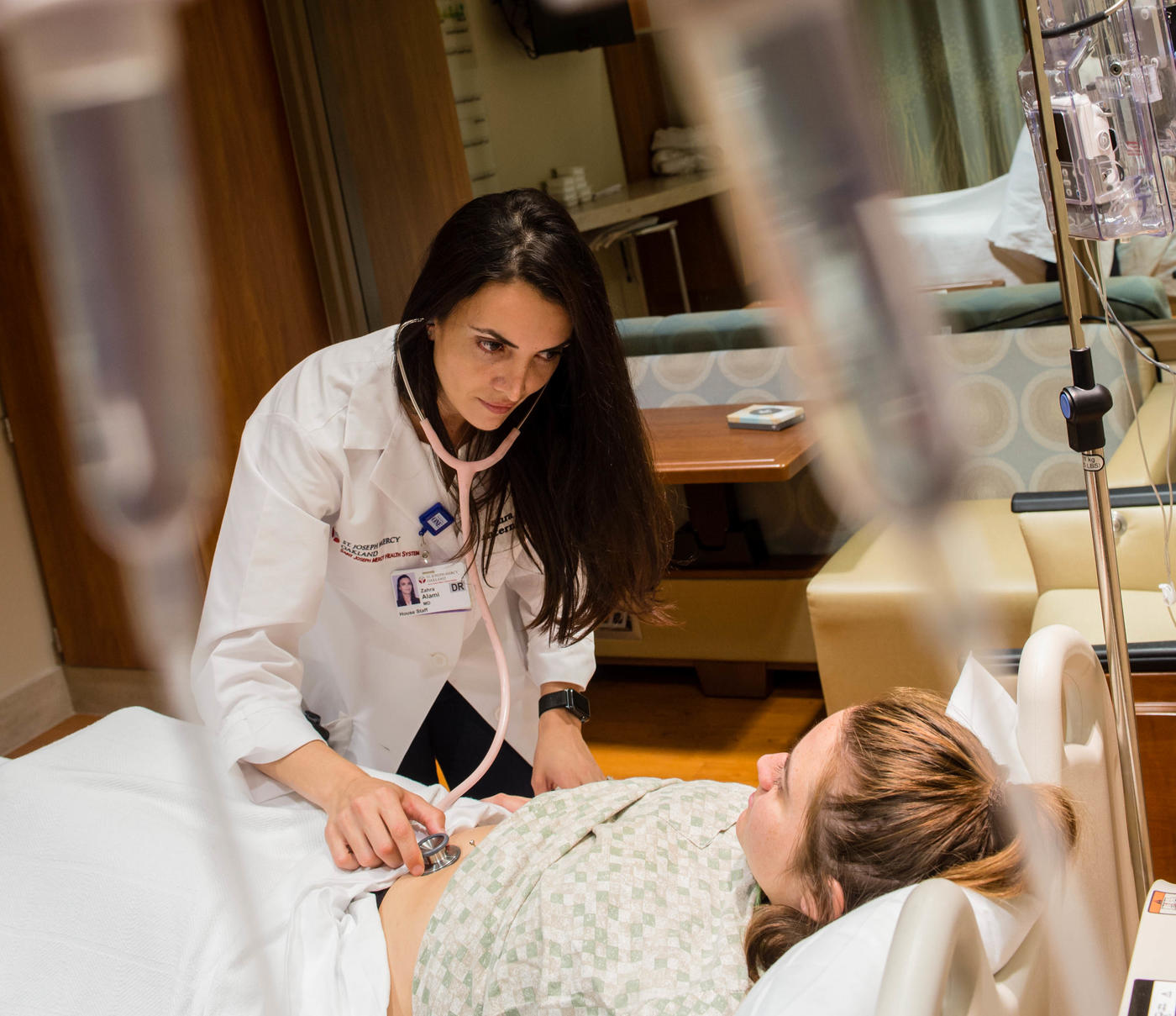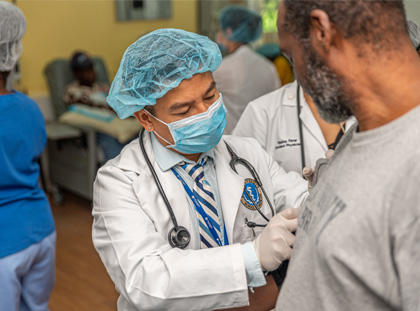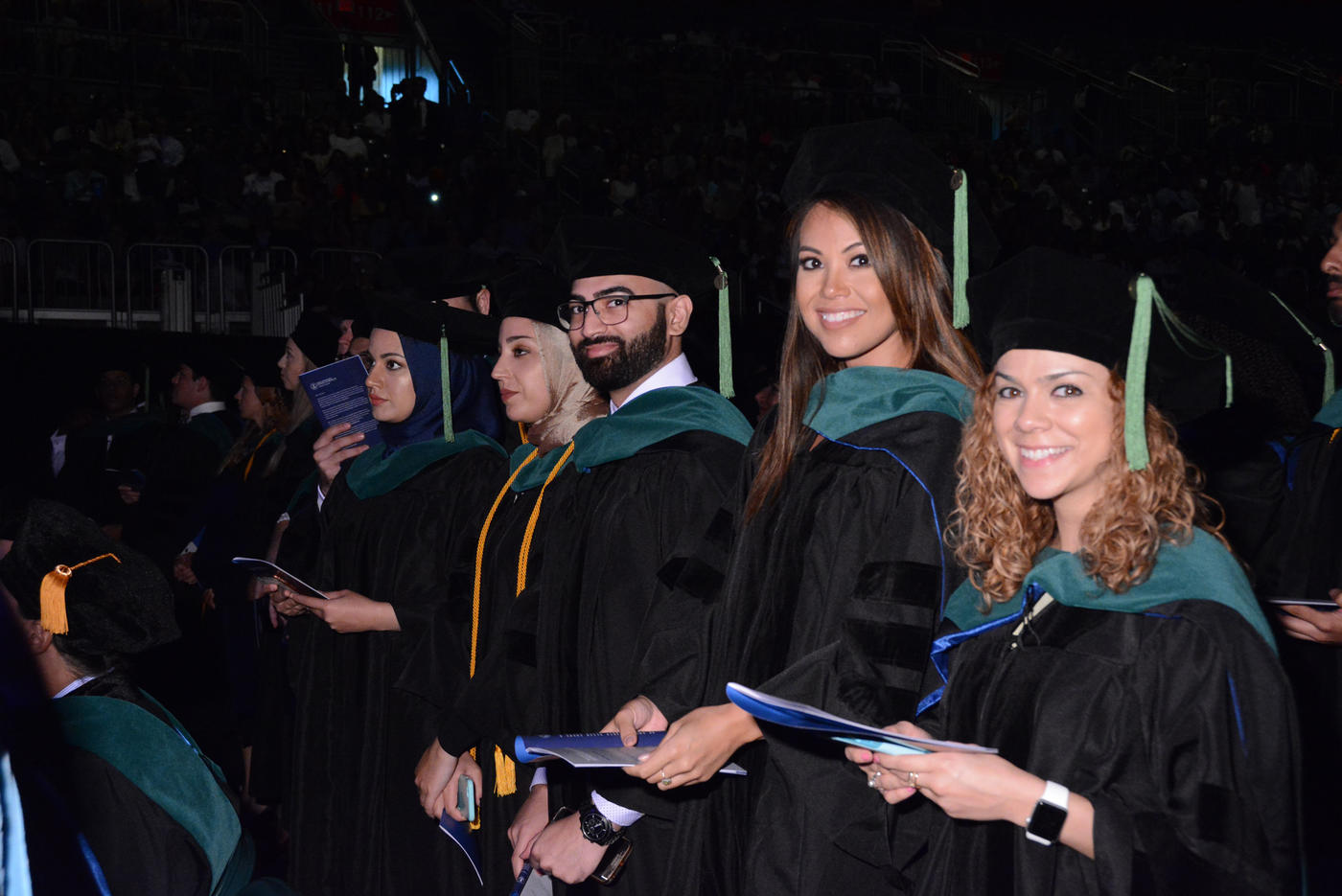Patients want physicians who are knowledgeable about their specific medical issue, but also are more likely to trust doctors with good bedside manners. When doctors exhibit great “people skills” in patient care, it yields enormous benefits for both patients and their doctors. Consequently, as hospitals focus on patient satisfaction, medical schools are making good doctor bedside manner a large part of their training.
Developing a great doctor bedside manner is vitally important to foster trust with patients, create rapport, and maintain a positive patient experience. A journal article*reveals data about the healthcare experience, the issues important to patients and how physicians can elevate the doctor-patient relationship. The research reveals that a doctor's interpersonal skills are key to effective doctor-patient communication and are a central function in a therapeutic doctor- patient relationship.
Patients treated with empathy and compassion by their doctor are more likely to have the best outcome. For example, patients are more likely to share information with their doctor, follow advice, and are more likely to follow a recommended treatment plan to maintain good health.
How to Become a “Great Bedside Manner Doctor”
Every physician needs to know how to optimize their bedside manner to be an effective medical professional. Many elements are often overlooked with the stresses and challenges of day-to-day care. What are the qualities and traits that create a good doctor bedside manner? What major factors matter most to patients and how should medical students learn to develop good bedside manner?
- Approach: The curriculum at Ross University School of Medicine (RUSM) focuses on building doctor-patient relationships, deemed essential for positive patient outcomes. The Ross approach to care treats the whole person, and teaches students to be a trusted partner in health matters. Medical students at RUSM develop the skills to foster a great patient experience by evaluating both body and mind in therapeutic conversations and follow-up. Aspiring physicians learn to account for all aspects of patient health, not just the issue that brought the patient to seek care. The most effective doctors go the extra mile to assist the patient in navigating the healthcare system to ensure they receive quality care.
- Personality: Patients appreciate when they feel their provider is engaged, validates their concerns, and treats them with respect and compassion. The support of a physician can reduce a patient’s stress level and makes it more likely for a patient to follow treatment guidelines.
- Communication: Patients want rapport with a doctor who has excellent interpersonal skills, one who listens, puts them at ease, and handles difficult conversations with empathy and reassurance. Effective doctors ask questions to identify crucial information about a patient and take the time to both listen and explain.
- Cultural competence: Doctors need to communicate with people from varying backgrounds and must show that they understand and respect their patients’ socioeconomic and cultural backgrounds.
Hands-on Training – Learning to Think Like a Doctor
The patient-centered curriculum at RUSM allows students to develop the qualities that are key to good bedside manner. The Medical Sciences curriculum at RUSM prepares students for patient interactions with a variety of active learning experiences tied to traditional lecture and case-based learning. These experiences include clinical skills training, a standardized patient program and a high-fidelity medical simulation program. This approach helps students begin to think like doctors early in their medical school experience.
Medical students develop good bedside manner using patient simulations. RUSM Associate Professor and Chair of Clinical Foundations Dr. Ricardo Hood, explains that the RUSM Standardized Patient Program provides a setting for students to explore, acquire and practice clinical skills. “We simulate patients in a clinical setting. This prepares future physicians to make critical decisions about patients in real-time, just as they would in their future roles as physicians,” says Dr. Hood.
The patient interview allows students to practice with real patients with real diseases in the first semester, focusing on how to ask questions. “RUSM has adopted an approach used at Stanford Medical School, teaching students how to establish the doctor-patient relationship and how to collect information. We build on this in the second semester as part of a patient- centered approach that helps guide students to make medical decisions,” explains Dr. Hood.
RUSM allows students to learn principles of medicine and how they apply in community practice, in terms of gender and a wide range of ages within the context of their families, social groups, and communities. “The patient-centered approach at RUSM means the patient is the most important person in the doctor-patient relationship,” says Dr. Hood. “They aren’t just a client with a disease. We want to restore their health and keep them healthy. A big component of that result is establishing rapport with the patient and making it a personal experience.”
RUSM students learn to become intentional about the elements that build patient trust. “We want to give the patient a roadmap to understand what’s going to happen and show them care. Patients improve when they trust their doctor. They develop that trust when the doctor takes the time to hear them and address their concerns,” explains Dr. Hood.
Start Your Medical School Journey at RUSM
Fundamentally, the best way to develop a good doctor bedside manner is to imagine your patient as a family member or even as yourself. Learning good doctor bedside manner brings the focus back to the human side of medicine and results in the best patient care.
An admissions associate can answer any questions about the hands-on curriculum RUSM and provide additional information about all aspects of an RUSM education. You can reach the Admissions Office at 855-637-6778 or email admissions@rossu.edu.




